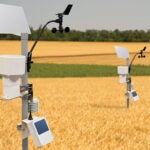- Resources
- Four frightening ways the fires in Brazil's Amazon will impact businesses
Resources
Four frightening ways the fires in Brazil's Amazon will impact businesses
Published: August 27, 2019 by Katie Anderson
Brazil’s space research agency (INPE) detected almost 80,000 fires this year, around half in the Amazon, up 84% over last year. If unchecked, this trend would be catastrophic for the planet. Businesses will take a huge hit but they can also be an important contributor to reversing these trends.

Brazil ranks second in the world for soy and beef production—and as a result many companies’ supply chains touch Brazilian agriculture. This makes what happens in Brazil highly relevant for the over 200 companies that have approved science-based targets to reduce climate emissions and the over 400 companies that have set specific targets to address deforestation.
But in just under a year the Brazilian President Jair Bolsonaro has rapidly unraveled forest protections and decades of work on sustainable farming practices, jeopardizing the long-term health of the world’s largest rainforest and of the businesses that rely on it. Bolsonaro’s agenda is undermining corporate efforts to achieve their sustainability goals.
Four frightening trends in Brazil that will impact businesses
- Razing the Amazon costs everyone.
Fires in the Amazon are pouring rivers of smoke across the continent and have caused dark-outs in Sao Paulo, over 2700 km away. Scientists warn of a tipping point at 20-25% deforestation, beyond which weather patterns in Brazil would be altered permanently and large part of the Amazon would “die back”, transforming from forest to scrub savanna. As this shift accelerates climate change, it reduces one of the lowest-cost options to stabilize global temperatures: protecting the Amazon.
- Eliminating oversight and monitoring capabilities increases risks for companies and rewards the poorest performers.
The Bolsonaro administration fired the MIT-trained physicist responsible for monitoring deforestation in the Amazon. Without effective monitoring, the worst actors are shielded from global stakeholders and unaccountable for violations. Bolsonaro’s Environment Minister has effectively dismantled government’s environmental law enforcement agency. This lack of transparency and accountability also increases risks to business of human rights violations in protected indigenous lands and makes it more challenging to determine where more action to curb deforestation is needed.
- Key funders of sustainable development are pulling back support for Amazon conservation.
Norway and Germany froze their contributions to Brazil’s Amazon Fund after President Bolsonaro abolished the technical committee that oversaw the fund. This reduces support for critical sustainable development projects on the ground that help create enabling conditions for lower risk sourcing for companies.
- Trade deals, such as the EU-Mercosur agreement, are in jeopardy.
The European Union is currently negotiating a trade deal with Brazil, Argentina, Paraguay and Uruguay, which could open sourcing opportunities for companies. But the news from the Amazon may cause the deal to stall.
Economic development and thriving forests can go hand-in-hand
But businesses have the power to interrupt these trends. The Bolsonaro administration is pitting environmental protections against economic growth, but this is a false dichotomy. Decades of experience in Brazil have demonstrated that environmental protections can fuel sustainable agricultural production, not the other way around.
Follow Katie on Twitter: @ksanderson727 .

